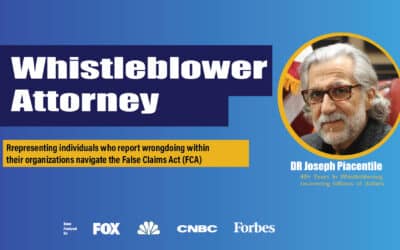ENVIRONMENTAL FRAUDS
ENVIRONMENTAL FRAUDS
Congress has enacted many laws which seek to protect our planet’s natural resources. Some of these provide direct protection to natural resources, such as plants and animals on the verge of extinction, to not only protect them but to assist in the process of improving their condition. Other laws establish how certain resources can be extracted, transported, or used, such as oil, coal, and gas, to avoid damaging other resources or harming society in the process.
THE ENDANGERED SPECIES ACT
As is usually the case when someone misuses natural resources or causes harm to them with their actions, the government does not have all the necessary information to effectively prosecute those who cause these harms. To incentivize people coming forward with valuable information concerning these types of infractions and violations, many of the laws enacted by Congress, which aim to protect our planet’s natural resources provide rewards to those who blow the whistle on this kind of misconduct. As an example of such a law, the Endangered Species Act of 1973 was enacted with the intention of protecting and conserving endangered or threatened animals and plants. This law not only protects species that are on the verge of becoming extinct, by imposing fines and imprisonment on those who violate its provisions, but it also provides help to aid species in recovering until they no longer need to be protected by law. To achieve its ends, the Endangered Species Act authorizes the Secretary of the Interior and the Secretary of Treasury to grant monetary rewards to anyone who provides information that leads to a forfeiture of property, a civil penalty assessment, a criminal conviction, or an arrest for violations of its provisions. These rewards are paid from any fines, penalties, or forfeitures received by the government.
THE LACEY ACT
Another example of a law created by Congress to protect the environment is the Lacey Act. The Lacey Act was originally enacted in 1900 to prohibit the importation of certain wildlife. This law prohibits any trade involving animals or plants that have been illegally transported, possessed, taken, or sold. When initially enacted, its main purpose was to protect animals that were being hunted excessively. The Lacey Act also includes a provision authorizing awards to be paid to anyone who provides information concerning violations of the statute. In 1981, Congress added a provision protecting and rewarding whistleblowers who expose violations of the Act leading to successful enforcement actions. The Lacey Act originally only protected wildlife, but in 2008 it was amended to include a ban on trade in illegally sourced plants or plant products, including timber, wood, and paper. Timber from regions suffering devastating deforestation like the Amazon is such an illegally sourced product.
OTHER ENVIRONMENTAL STATUTES WITH WHISTLEBLOWER PROVISIONS
Other statutes enacted by Congress to protect natural resources are the Rhinoceros and Tiger Conservation Act of 1994, the African Elephant Conservation Act of 1988, the Marine Mammal Protection Act, the Antarctic Conservation Act of 1978, the Wild Bird Conservation Act of 1992, the Fish and Wildlife Improvement Act of 1978, the Migratory Bird Treaty Act, the Airborne Hunting Act, the Bald and Golden Eagle Protection Act, the American Fisheries Act of 1998, the Dolphin Protection Consumer Information Act, the Fisherman’s Protective Act, the Florida Keys National Marine Sanctuary and Protection Act, National Wildlife Refuge System Improvement Act, the High Seas Fishing Compliance Act, the Sustainable Fisheries Act of 1996, and the Whaling Convention Act. As can be inferred just from their titles, these laws protect a wide range of natural resources. Some protect specific species. Others, specific ecosystems. Some even extend protection to resources not found within the United States of America, such as the African Elephant Conservation Act.
Of relevance, the Fish and Wildlife Improvement Act was enacted with the purpose of creating and conducting training programs for state fish and wildlife law enforcement personnel. It also allows the Secretaries of the Interior and Commerce to enter into agreements with state and federal agencies. Of particular interest from this law is that it currently contains a provision allowing whistleblowers to receive rewards for providing information on violations of any law administered by the United States Fish and Wildlife Service or the National Marine Fisheries Service concerning animals or plants. These include many of the laws listed above which in of themselves do not provide for whistleblower rewards.
HELP SAVE WILDLIFE AND THE EARTH’S BIODIVERSITY
By coming forward with valuable information, whistleblowers can not only help protect the environment and our planet’s natural resources, but they may also receive financial compensation for doing the right thing. When individuals or companies cause harm to our environment and avoid prosecution or payment of environmental fines by hiding or trying to conceal their misconduct, whistleblowers play a vital role in holding these parties accountable. By coming forward with the information they possess, the government is able to effectively enforce its statutes. By doing so, whistleblowers help hold individuals accountable for their actions against the environment and help stop these kinds of actions from happening again, causing more damage than has already been done. This is especially important when dealing with natural resources which are of limited quantities since damages may become irreversible.
Contact Us Today
The information submitted will be submitted to the law firm of Piacentile, Stefanowski & Associates LLP d/b/a Whistleblowers International. This communication does not create an attorney-client relationship and is submitted only for the purpose of evaluating your claim to see if this is something we are able to help you with. By contacting us, you certify that you are a potential client making a bona fide inquiry about obtaining legal services to address a potential whistleblowing legal claim. Past results do not guarantee future outcomes. While this submission does not create an attorney-client relationship, all information submitted will be kept strictly confidential per legal ethics rules since this information is submitted in contemplation of a potential attorney-client relationship. No attorney-client relationship is formed until it is determined after evaluation with you that this is something we can take on and a retainer agreement is signed by you and the law firm of Piacentile, Stefanowski & Malherbe LLP d/b/a Whistleblowers International. Please also understand that by submitting your information, there is no guarantee that we will contact you in response, as at any given time, there are only a limited number of claims we are able to take on and pursue. If we do not contact you within 3-business days of your submission, please reach out to another whistleblower law firm if you are interested in pursuing your matter.
Our Areas of Practice
HEALTHCARE FRAUD
Securities / Derivatives Fraud
Fraud Against the Government
Tax Fraud
Cryptocurrencies Fraud
Defense Contractor Fraud
Money Laundering
Foreign Corrupt Practices Act
DR. JOE’S CASES HAVE BEEN FEATURED IN:





COMMITTED TO GLOBAL TRANSPARENCY
Unmasking Investment Fraud: A Private Investigator’s Guide to Navigating Financial Scams
As a private investigator specializing in investment fraud cases, I've seen countless victims fall prey to sophisticated schemes that exploit their trust and hard-earned money. Over the years, I’ve gathered insights on how to spot fraud, protect investments, and take...
Whistleblower Attorneys: Protecting Those Who Speak Out Against Fraud
At Whistleblowers International, we specialize in representing courageous individuals who report fraud, misconduct, or illegal Whistleblower Attorneys: Protecting Those Who Expose Fraud At Whistleblowers International, we are...
Financial Crimes Enforcement Network (FinCEN): An Overview
The Financial Crimes Enforcement Network (FinCEN) is a bureau within the U.S. Department of the Treasury that plays a critical role in safeguarding the financial system against illicit activities such as money laundering, terrorist financing, and other financial...
What is FinCEN?
The Financial Crimes Enforcement Network (FinCEN) is a bureau of the U.S. Department of the Treasury dedicated to combating financial crimes, such as money laundering, terrorist financing, and other illicit activities that exploit the financial system. Established in...
PCBs and Cancer: Understanding the Risks and Connections
Polychlorinated Biphenyls (PCBs) are chemical compounds that were widely used in industrial applications before their ban in the late 1970s due to health concerns. One of the most significant risks associated with PCB exposure is cancer. Numerous studies have explored...
Understanding the Current PCB Legal Landscape and Emerging Cases
Polychlorinated Biphenyls (PCBs) Polychlorinated Biphenyls (PCBs) have been the subject of numerous lawsuits for decades due to their widespread use and enduring impact on the environment and public health. Despite being banned in the late 1970s, PCBs continue to pose...
Understanding PCB Exposure: Common Questions and Answers
What is PCB Exposure? Q: What is PCB exposure? A: PCB (Polychlorinated Biphenyl) exposure refers to contact with these man-made chemicals, which were widely used in various industrial applications from the 1930s until their production was banned in many countries in...
Top U.S. Government Contractors and the Risks of Procurement Fraud
The U.S. government is one of the largest purchasers of goods and services globally, spending hundreds of billions annually on contracts with private companies. While these contracts provide significant business opportunities, they also come with risks, including the...
Understanding Government Contract Fraud: Can Contractors Be Criminally Charged?
Government contract fraud is a significant issue affecting both the federal government and the private sector. With billions of dollars allocated to government contracts annually, instances of fraud have emerged as a critical concern. This article explores whether...
Understanding Securities and Commodities Fraud: Insights from a Lawyer’s Perspective
Securities and commodities fraud can be complex and overwhelming to navigate, especially if you're facing legal challenges in these areas. This blog post aims to shed light on the essential aspects of securities and commodities fraud, answering key questions and...
The information on this website is for general information purposes only. Nothing on this site should be taken as legal advice for any individual case or situation.
We do not accept cases in all jurisdictions. No representation is made that the quality of the legal services to be performed is greater than the quality of legal services performed by other lawyers. Prior results do not guarantee a similar outcome. This information is not intended to create, and receipt or viewing does not constitute, an attorney-client relationship. While we will treat any information provided as privileged and confidential, you should understand that when you provide information about a potential case to us, we do not become your attorneys. We do not represent you until we have agreed to do so and a retainer has been signed by both of us. This information is not intended to create, and receipt or viewing does not constitute, an attorney-client relationship. This website may be considered attorney advertising in some states.
© 2024 All Rights Reserved.




